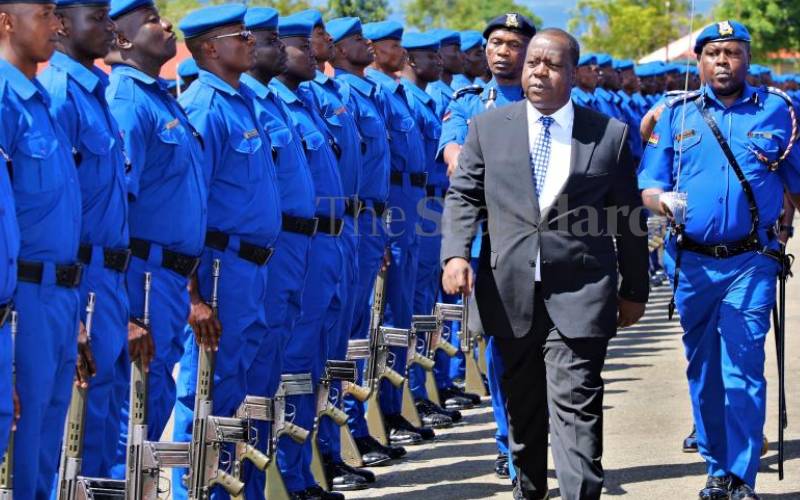×
The Standard e-Paper
Stay Informed, Even Offline

Currently, the police budget is under the Ministry of Interior under Cabinet Secretary Fred Matiang’i. [Mose Sammy, Standard]
Calls for separation on police budget from the Ministry of Interior dominated a public participation forum on budget-making process for the year 2022/23.